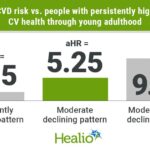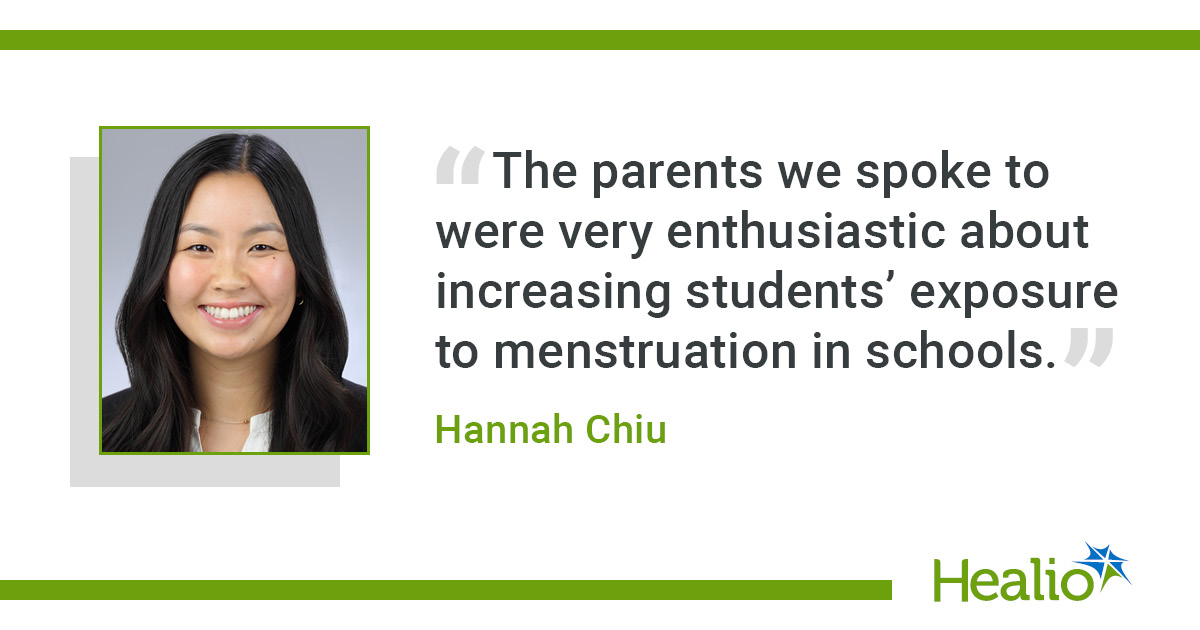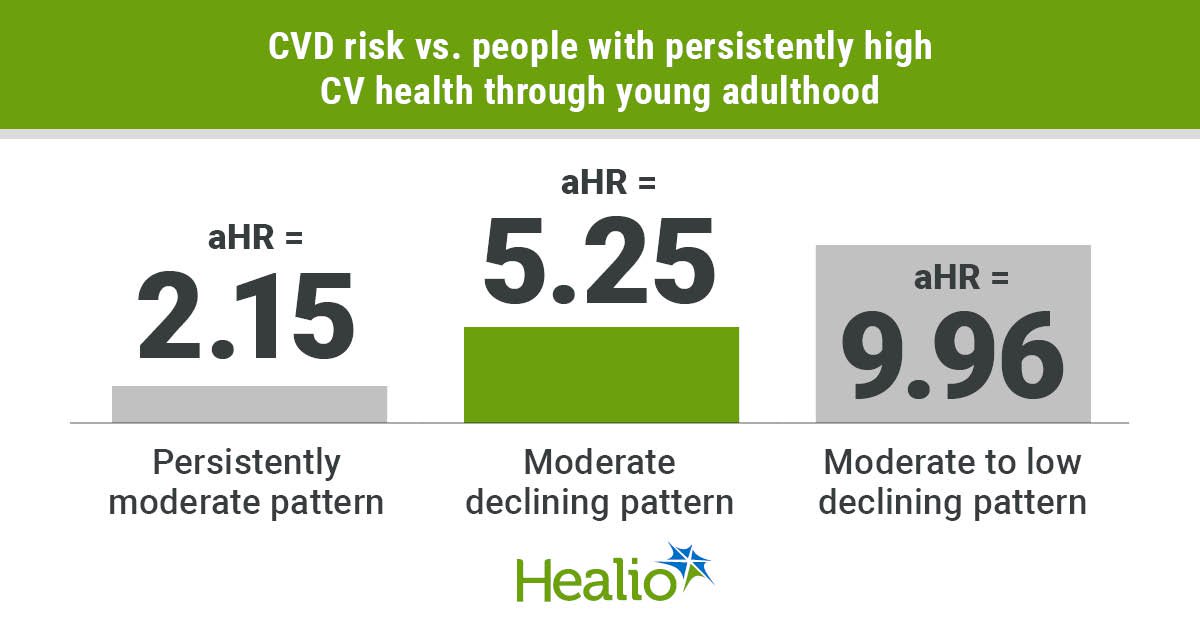October 06, 2025
2 min read
Key takeaways:
- Period Prepared seeks to address gaps in menstrual education in a state with no mandate for sexual education.
- Group sessions with less than 10 close-in-age students were most effective at stimulating discussion.
DENVER — “Period Prepared,” a menstrual education program, was well received by stakeholders and fostered discussion in small groups of similarly aged students, according to a presentation at the AAP National Conference & Exhibition.
“The parents we spoke to were very enthusiastic about increasing students’ exposure to menstruation in schools, since over half of them reported sentiments that their child’s first period came sooner than they expected or that they did not know how to approach the topic at a younger age to foster preparedness,” Hannah Chiu, medical student at Tulane University School of Medicine, told Healio.

The program offers students in grades three through 12 a forum to learn about menstruation from medical student volunteers. It operates in Louisiana, a state that does not mandate sexual education in public schools.
Without that mandate, there was a gap in education provided in 2020, Chiu said, where only 11% of middle schools and 24% of high schools covered the comprehensive list of sexual education topics.
Period Prepared seeks to fill this education gap by covering a range of topics, including period hygiene, clinical menstruation expectations and cycle monitoring, according to a press release. The program engages students in hands-on learning, with participants making do-it-yourself heating pads and taking part in role-playing activities about asking for help with their periods.
“Our curriculum focuses on including a hands-on component or interactive activity in each lesson plan so that students can practice tangible skills,” Chiu said. “For example, in our session about cycle tracking, students complete an activity where they fill out a calendar to mark the mood changes and symptoms based off three different teenagers’ scenarios.”
Chiu said she and her co-founders spoke with over 30 stakeholders, including menstruators, teachers, parents and pediatricians, and found the program was well received across groups. Specifically, students appreciated the judgement-free zone to ask questions, and parents and teachers valued the online workshop materials and use of permission slips.
From these stakeholder interviews and the Period Prepared team’s experience working with over 100 students, Chiu noted that sessions provoked the most discussion when they featured small groups of less than 10 close-in-age students.
“When teaching sessions, we found that having smaller groups encouraged students to share more and ask questions openly,” Chiu said. “Since so many of the activities are hands on, doing them in small groups allows them to be more straightforward and catered toward their individual pace.”
Chiu was surprised by the interest that younger students expressed in more advanced topics beyond period products and hygiene, which led to the inclusion of lessons on pelvic floor therapy and playing sports while menstruating in groups of third through fifth graders.
Chiu hopes to expand on her research on the program in the future.
“As most of our findings are currently qualitative and based on our own experiences leading these sessions, we hope to conduct more formalized research through surveys and interviews with program participants,” Chiu told Healio.
For more information:
Hannah Chiu can be reached at hchiu1@tulane.edu.










